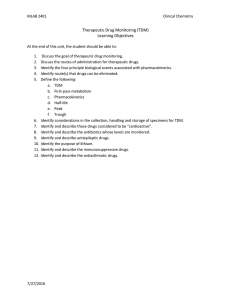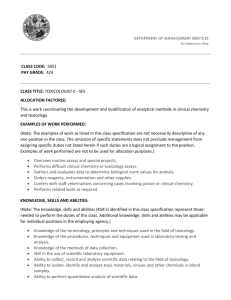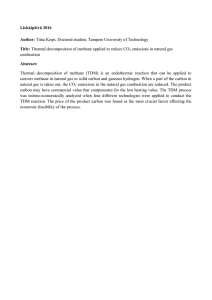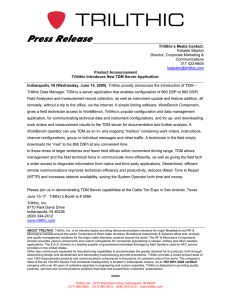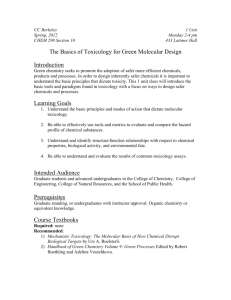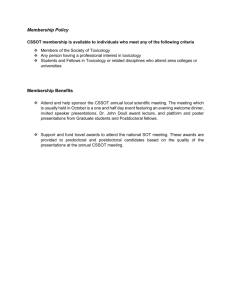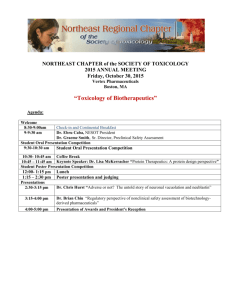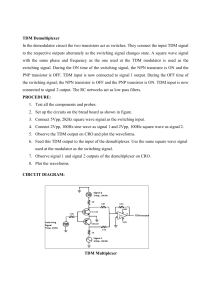Instructor - Dixie State University
advertisement
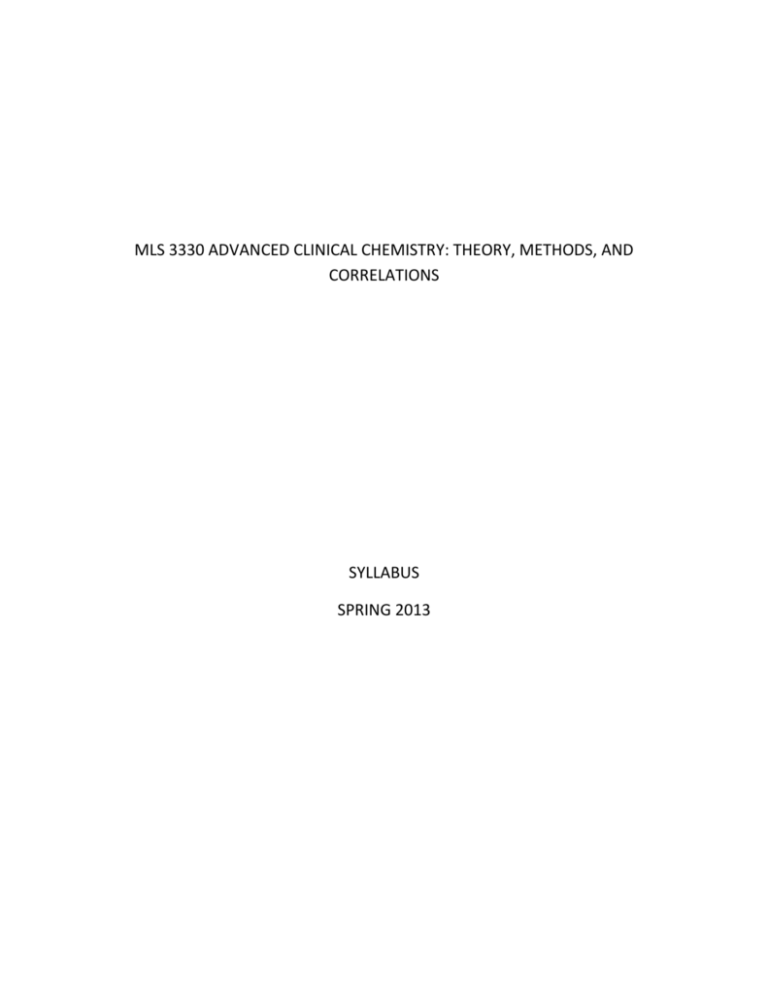
MLS 3330 ADVANCED CLINICAL CHEMISTRY: THEORY, METHODS, AND CORRELATIONS SYLLABUS SPRING 2013 Instructor: David Loughmiller Adjunct Faculty 435-251-2362 David.loughmiller@imail.org Time/Place: Credits: TBA 4 This syllabus is for information purposes only, is subject to change and is only a guideline for the course. All changes will be provided to each student in writing and the student will be accountable for all written changes. Course Objectives: 1. List current instruments which perform TDM. 2. Describe two methods currently used in TDM. 3. Correlate lab values involving TDM with associated disease states. 4. Review both correct and erroneous printouts from analyzers performing TDM and provide rationale of the erroneous results. 5. Describe time limits of Troughs and Valleys for specific analytes regarding time of draw in relation to dose given and how lab results are affected if time specifications are not followed. 6. Explain the principles of Gas-liquid chromatography, GCMS, HPLC, Immunoassay EIA, Atomic Absorption. 7. Explain the relationship of solubility and volatility of ionizable analytes with respect to them being either in ionized form or unionized form. 8. Explain the utility of serum Osmolal Gap as part of a toxicology screen. 9. Explain the principle of the Biosite Diagnostics Triage urine drug screen. 10. Compare the biological half lives of the following categories of hormones: steroids, polypeptides, amino acid derivatives. Textbooks: Clinical Laboratory Chemistry by Graves and Sunheimer (Pearson) Course Description: This problem solving oriented course presents the correlation of clinical chemistry test results to organ related diseases such as renal, hepatic, and endocrine diseases. The student will learn how to use clinical correlation as a quality assurance tool to detect patient testing errors. Therapeutic drug monitoring and toxicology studies are presented. The laboratory portion of the class will allow students to apply theory presented in lecture. Americans with Disabilities Act (ADA) Statement: Students with medical, psychological, learning or other disabilities desiring reasonable academic adjustment, accommodations, or auxiliary aids to be successful in this class will need to contact the disability resource center coordinator for eligibility determination. Proper documentation of impairment is required in order to receive services or accommodations. DRC is located at the ground floor of the Financial Aid office. Visit or call 652-7516 to schedule an appointment to discuss the process. Confidentiality: No college employee shall provide information to a person or entity concerning a student without fully complying with the family educational rights and privacy act (20 U.S.C.A. 1232g) and the Government Records Access and Management Act (U.C.A. 63-2-101). In most circumstances, such as requests from a licensing body or an employer, information may only be provided with the prior written consent of the student. In some circumstances, however, such as requests from other institutions where the student seeks or intends to enroll, information may be provided without the consent of the student but only after following appropriate procedures outlined in these statutes. Refer to HIPAA policy. Grading: Lecture Exam 1 Lecture Exam 2 Lecture Exam 3 15% 15% 15% Lecture Exam 4 Final Exam Lab Exam 1 Lab Exam 2 Lab Exam 3 Lab Exam 4 15% 20% 5% 5% 5% 5 Topics: Unit 1: Therapeutic Drug Monitoring Unit 2: Toxicology Unit 3: Endocrine Functions Unit 4: Renal Function Studies Unit 5: Hepatic Function Studies Unit 6: Clinical Correlation of Biochemical Tests
